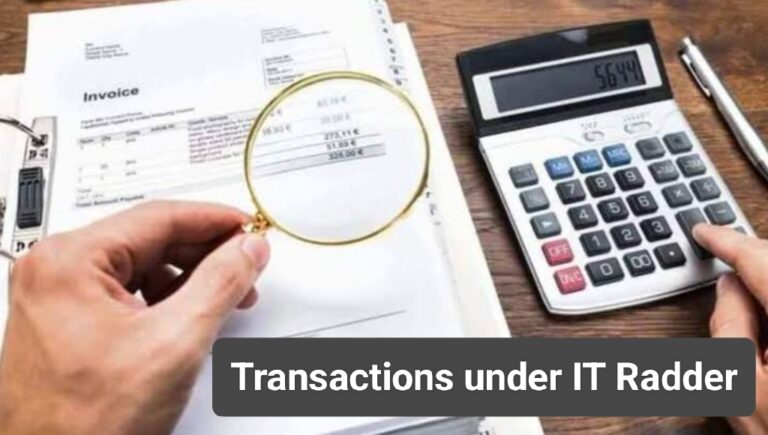In its continuous effort to curb the use of unaccounted cash in the economy, the Income Tax Department of India has intensified its surveillance on certain high-value financial transactions. These transactions, if found to be disproportionate to your declared income, may lead to inquiries, notices, or even penalties from the tax authorities.
The Government of India is firmly against the excessive use of cash, promoting a shift towards digital payments and transparency. However, despite growing awareness, many individuals still engage in large cash dealings—often unknowingly breaching the income tax norms. It’s essential to understand which financial activities attract the attention of the Income Tax Department and how to stay compliant.
Why Monitoring Transactions Is Important
To ensure tax compliance and curb black money, the Income Tax Department monitors high-value transactions through a reporting system known as the Statement of Financial Transactions (SFT). This mechanism enables the department to cross-verify transactions with the income declared in your Income Tax Return (ITR).
Various entities—including banks, post offices, mutual fund companies, cooperative societies, and credit card issuers—are mandated to report specified transactions above certain thresholds. These entities must submit their SFTs by May 31 of the following financial year.
Key Transactions That Are Under the Income Tax Radar
Here are some of the major financial transactions that may trigger tax scrutiny if not reported or justified properly:
1. Cash Deposits in Savings Accounts
- Depositing cash over Rs. 10 lakh in a financial year into a savings account is reported.
- Multiple small deposits summing up to this amount are also tracked.
2. Fixed Deposits (FDs)
- Cash deposits exceeding Rs. 10 lakh in FDs in a year must be reported by banks.
3. Credit Card Bill Payments
- Payment of credit card bills in cash exceeding Rs. 1 lakh in a year attracts attention.
- Payments of over Rs. 10 lakh through any mode (online, cheque, etc.) are also reported.
4. Purchase or Sale of Immovable Property
- Buying or selling property worth Rs. 30 lakh or more must be reported by the registrar.
- Cash payments for such transactions are heavily discouraged and monitored.
5. Mutual Fund, Bonds, and Debentures Investments
- Investments exceeding Rs. 10 lakh in a financial year in mutual funds, bonds, or debentures are reported by the respective institutions.
6. Share Market Transactions
- Large purchases or sales of equity shares—especially when amounting to Rs. 10 lakh or more—are reported to the tax authorities.
7. Foreign Exchange Transactions
- Any foreign exchange purchase or foreign travel expense exceeding Rs. 10 lakh must be reported.
8. Luxury Expenditures
- High-value purchases such as expensive jewelry, watches, vehicles, or overseas vacations may draw scrutiny if not in line with reported income.
How the Income Tax Department Uses SFT
All the above high-value transactions are captured by the Statement of Financial Transactions (SFT). The department uses this information to cross-check whether the income reported by taxpayers in their ITR matches with their spending or investment behavior. Any significant mismatch may prompt a compliance notice or scrutiny under the Income Tax Act.
Tips to Avoid Tax Notices
- Always file your ITR accurately, disclosing all income sources.
- Avoid large cash transactions; prefer digital modes or cheques for traceability.
- Maintain proof and documents for all high-value investments and purchases.
- Track your Annual Information Statement (AIS) and Form 26AS regularly to ensure all reported transactions are accurate.
Final Thoughts
In today’s digitized financial environment, it is critical to maintain transparency in all monetary transactions. Being aware of the types of activities that are under the lens of the Income Tax Department can help individuals and businesses avoid unnecessary legal complications. By staying within the prescribed limits and maintaining proper records, you can remain on the right side of the law and ensure a stress-free financial life.
